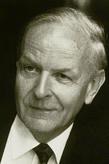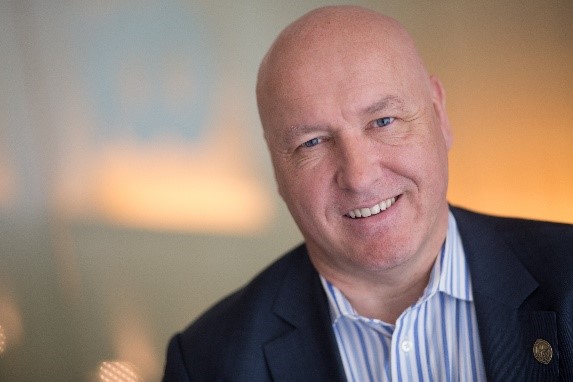 Founded in 1982 on the initiative of its namesakes, HILDEGARD DOERENKAMP and the late GERHARD ZBINDEN (pictured), the DOERENKAMP-ZBINDEN FOUNDATION was created to promote and reward “exceptional achievements in animal protection in biomedical research.” From its inception through the mid-1990s, the foundation focused primarily on reducing the suffering of animals used in experiments, awarding roughly a dozen refinement-oriented grants of up to $50,000 per year for up to two years. Additionally, the foundation has financed the Doerenkamp Chair for Innovations in Animal and Consumer Protection at the University of Erlangen in Germany to enhance the development and use of non-invasive imaging techniques in biomedical research.
Founded in 1982 on the initiative of its namesakes, HILDEGARD DOERENKAMP and the late GERHARD ZBINDEN (pictured), the DOERENKAMP-ZBINDEN FOUNDATION was created to promote and reward “exceptional achievements in animal protection in biomedical research.” From its inception through the mid-1990s, the foundation focused primarily on reducing the suffering of animals used in experiments, awarding roughly a dozen refinement-oriented grants of up to $50,000 per year for up to two years. Additionally, the foundation has financed the Doerenkamp Chair for Innovations in Animal and Consumer Protection at the University of Erlangen in Germany to enhance the development and use of non-invasive imaging techniques in biomedical research.
The Foundation reorganized to focus exclusively on replacement and reduction initiatives. Under this new mandate, a Foundation Professorship for In Vitro Methods for the Replacement of Animal Experiments has been established at the University of Konstanz in Germany. The Foundation also awards an annual prize for outstanding achievement, above and beyond its ongoing grants program.
Held by Thomas Hartung
 THOMAS HARTUNG, MD, PhD, is director of the Center for Alternatives to Animal Testing (CAAT) and the inaugural holder of the Doerenkamp-Zbinden Endowed Chair in Evidence-based Toxicology in the Department of Environmental Health Sciences at the Johns Hopkins Bloomberg School of Public Health where he has been on the faculty since 2009.
THOMAS HARTUNG, MD, PhD, is director of the Center for Alternatives to Animal Testing (CAAT) and the inaugural holder of the Doerenkamp-Zbinden Endowed Chair in Evidence-based Toxicology in the Department of Environmental Health Sciences at the Johns Hopkins Bloomberg School of Public Health where he has been on the faculty since 2009.
In 1991 Dr. Hartung received a doctorate in biochemical pharmacology from the University of Konstanz, Germany, and a medical degree in toxicology in 1992 from the University of Tubingen. He completed his medical internship in surgery at the University of Freiburg at the hospital of Singen, Germany.
Dr. Hartung joined the faculty at University of Konstanz in 1994, where he served as an assistant professor of biochemical pharmacology until 1999, and then as an associate professor in the Department of Pharmacology and Toxicology until 2002. He has been an honorary full professor of pharmacology at Konstanz since 2003. From 1996 to 2002, Dr. Hartung also served as the chief executive officer of the Steinbeis Technology Transfer Center for In Vitro Pharmacology and Toxicology (InPuT).
From 2002-2008, Dr. Hartung was head of the European Centre for Alternative Methods (ECVAM) at the European Commission Joint Research Centre in Italy. As head of ECVAM, he was integral in accelerating the alternative methods validation process, and in establishing a network of more than 400 experts from all stakeholder groups to facilitate global regulatory harmonization in toxicity testing. In 2009, he was named the 2nd most cited German pharmacologist by Laborjournal. He received the Agilent Thought Leader award in 2009 for his research into the use of toxicity pathways to predict developmental neurotoxicity.
 Founded in 1982 on the initiative of its namesakes, HILDEGARD DOERENKAMP and the late GERHARD ZBINDEN (pictured), the DOERENKAMP-ZBINDEN FOUNDATION was created to promote and reward “exceptional achievements in animal protection in biomedical research.” From its inception through the mid-1990s, the foundation focused primarily on reducing the suffering of animals used in experiments, awarding roughly a dozen refinement-oriented grants of up to $50,000 per year for up to two years. Additionally, the foundation has financed the Doerenkamp Chair for Innovations in Animal and Consumer Protection at the University of Erlangen in Germany to enhance the development and use of non-invasive imaging techniques in biomedical research.
Founded in 1982 on the initiative of its namesakes, HILDEGARD DOERENKAMP and the late GERHARD ZBINDEN (pictured), the DOERENKAMP-ZBINDEN FOUNDATION was created to promote and reward “exceptional achievements in animal protection in biomedical research.” From its inception through the mid-1990s, the foundation focused primarily on reducing the suffering of animals used in experiments, awarding roughly a dozen refinement-oriented grants of up to $50,000 per year for up to two years. Additionally, the foundation has financed the Doerenkamp Chair for Innovations in Animal and Consumer Protection at the University of Erlangen in Germany to enhance the development and use of non-invasive imaging techniques in biomedical research.